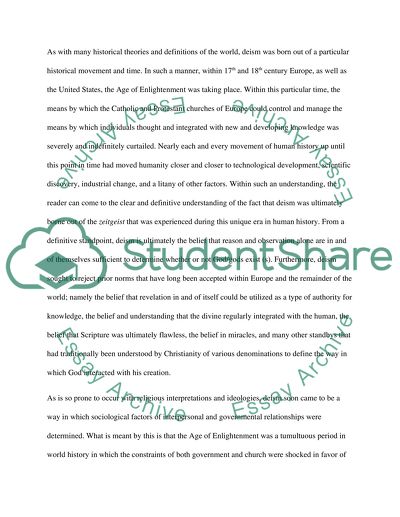Cite this document
(“Deism Essay Example | Topics and Well Written Essays - 2500 words”, n.d.)
Deism Essay Example | Topics and Well Written Essays - 2500 words. Retrieved from https://studentshare.org/religion-and-theology/1480682-deism
Deism Essay Example | Topics and Well Written Essays - 2500 words. Retrieved from https://studentshare.org/religion-and-theology/1480682-deism
(Deism Essay Example | Topics and Well Written Essays - 2500 Words)
Deism Essay Example | Topics and Well Written Essays - 2500 Words. https://studentshare.org/religion-and-theology/1480682-deism.
Deism Essay Example | Topics and Well Written Essays - 2500 Words. https://studentshare.org/religion-and-theology/1480682-deism.
“Deism Essay Example | Topics and Well Written Essays - 2500 Words”, n.d. https://studentshare.org/religion-and-theology/1480682-deism.


